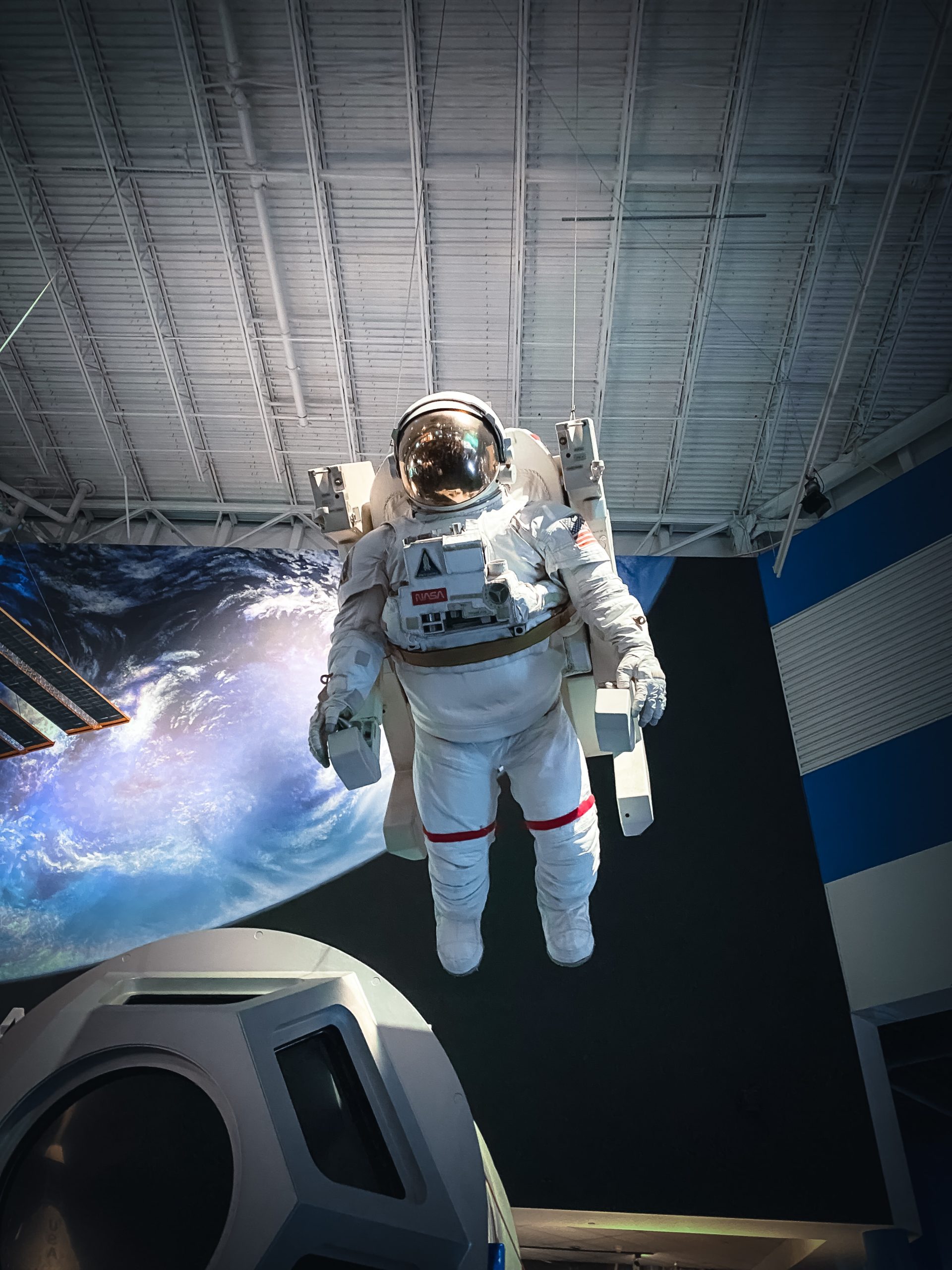We met in our usual location – the comfortable bar area of the Stratton House Hotel – for February’s Biggleswade NWR meeting, where the discussion topic was: Would you go into space? Should we go into space? How has space travel impacted our lives? However, this discussion topic proved just a starting point for an enjoyable evening full of wide ranging discussions and chat that regularly veered off topic! It was great to have a couple of new faces join us. Welcome!
You may have heard about NASA spending a fortune developing a pen that would work in space whereas the Russians simply used a pencil. This is actually a myth – both NASA and the Russians used a pencil. However, using a pencil was not the best choice. It was flammable and the tips broke, drifting in the microgravity where they could potentially cause harm. A pen was developed for use in space by the Fisher Space Pen Company, and according to their website, it came in handy for more than writing when the Apollo 11 astronauts used the pen to fix a broken arming switch enabling their safe return to Earth.
We were divided about whether we wanted to go into space. On one side, the thrill of the experience and opportunity to view Earth from space was tempting. Others spoke of not coping with the claustrophobia of being in the shuttle for long periods of time and the danger.
Should we go into space? Here we were also divided. It is clear that numerous discoveries have been made by scientists and engineers as they grapple to seek solutions to problems, in addition to the findings of the scientific experiments that take place up in space. Space travel has also led to an increase in our understanding of the human body. For example, the long duration of the missions causes astronauts to suffer a loss of muscle mass and bone density as well as causing wear and tear on their circulation system. In monitoring them, scientists are learning about the effects of aging and supporting research into conditions like osteoporosis.
Would we have eventually made all these discoveries without space travel? Should we fully explore Earth first? Should we prioritise fixing the environment issues and improving the quality of life for all? These are difficult questions to answer.


